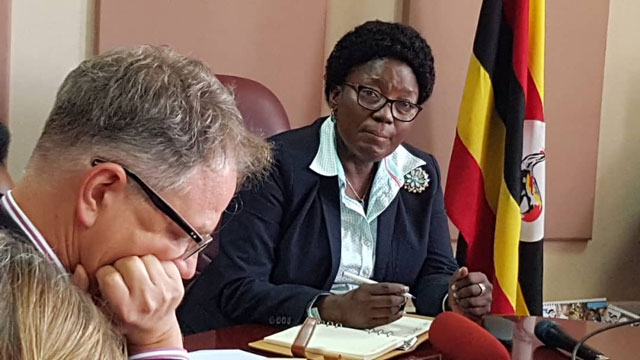
Kampala, Uganda | THE INDEPENDENT | In 2010, Uganda passed the Prohibition of the female genital mutilation(FGM) act that earned the country international acclaim. However, nine years down the road, FGM is on the increase in the country with the latest incidences involving gangs that are forcefully subjecting girls to genital mutilation. The gangs were first reported in December 2018.
As the world commemorates the International Day of Zero for Female Genital Mutilation today, Uganda Radio Network spoke to human rights activists in the area who intimated that the country’s fight against FGM has been slowly dying since the law was passed in 2010.
Harriet Gimbo, the Head of Operations at Action AID Uganda says the FGM fight has come to standstill due to a series of problems that have hindered many operations to end the vice
According to Gimbo, FGM is still popular because it is forced onto girls as an act of hidden revenge passed on by older persons in communities. She explains, some mothers push their children to go through the act as a way of bonding.
Among the Sabiny culture, FGM is traditionally recognized as right of passage in that girls had to go through before they could be looked at as women.
Gimbo recommends sensitization as an alternative way to fight FGM instead of a policy. She says that girls need to know that there are other ways a girl can become a woman in the Sabiny culture.
According to the 2010 prohibition law, persons who are found guilty of carrying out FGM once convicted are liable to ten years imprisonment or a life imprisonment when in regard to aggravated mutilation.
Beatrice Chelangat, the Director General of the Reproductive, Educative and Community Health(REACH) says FGM is an issue that buys votes during Parliamentary and local government elections. She says as such female members of parliament in the region are quiet on the issue.
According to Chelangat, some of the biggest supporters of FGM are educated men who have never gone through the process. She adds that some of them have even resorted to marrying second wives that have not been mutilated.
The United Nations Population Fund is one of the organizations helping to stop FGM in the country in districts where the vice is common. These include; Bukwo, Kween, Amudat and Kapchorwa.
Alain Sibenaler, the UNFPA Country representative says the latest resurgence of FGM in districts like Kween it is a shame and unacceptable but more needs to be done in providing alternative livelihoods for the people concerned.
The European Union Ambassador to Uganda, Attilio Pacific says government needs to implement the law regarding FGM. “FGM is fundamental violation of basic human rights and of dignity of women and girls. It is important for Uganda to reiterate the importance of systematically implementing specific legislation which outlaws the harmful practice.”
Last month, the Speaker of Parliament Rebecca Kadaga while addressing FGM stakeholders in a meeting called out government for abandoning its duties to NGOs as far as fighting FGM is concerned. “I think it wrong for government to abdicate its responsibility to an NGO. I do not think it is right.”
FGM can result into complications during child birth, anemia, urinary incontinence, painful sexual intercourse, sexual dysfunction, cysts and increases the risk of acquiring HIV.
 The Independent Uganda: You get the Truth we Pay the Price
The Independent Uganda: You get the Truth we Pay the Price


